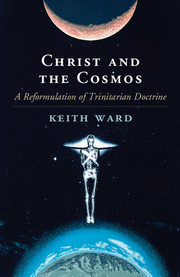Book contents
- Frontmatter
- Contents
- Preface
- Acknowledgements
- PART I THE THREEFOLD NATURE OF THE DIVINE BEING
- PART II THE BIBLICAL SOURCES OF TRINITARIAN THOUGHT
- PART III THE TRINITY, IMMANENT AND ECONOMIC
- PART IV THE SOCIAL TRINITY
- PART V THE COSMIC TRINITY
- 36 The Doctrine of Perichoresis
- 37 The Convergence of Social and One-Consciousness Models of the Trinity
- 38 Life-Streams and Persons
- 39 Modalism and Necessity
- 40 The Cosmic Trinity
- Bibliography
- Subject Index
- Name Index
39 - Modalism and Necessity
from PART V - THE COSMIC TRINITY
Published online by Cambridge University Press: 05 September 2015
- Frontmatter
- Contents
- Preface
- Acknowledgements
- PART I THE THREEFOLD NATURE OF THE DIVINE BEING
- PART II THE BIBLICAL SOURCES OF TRINITARIAN THOUGHT
- PART III THE TRINITY, IMMANENT AND ECONOMIC
- PART IV THE SOCIAL TRINITY
- PART V THE COSMIC TRINITY
- 36 The Doctrine of Perichoresis
- 37 The Convergence of Social and One-Consciousness Models of the Trinity
- 38 Life-Streams and Persons
- 39 Modalism and Necessity
- 40 The Cosmic Trinity
- Bibliography
- Subject Index
- Name Index
Summary
Every attempt to give a coherent account of the Trinity has to balance on a knife edge between saying that there are three gods and saying that there is only one God who just appears in different modes to different people at different times. It is obvious that if the account I have given tilts too far in one direction, it is in the direction of the latter affirmation, of what is often called modalism. I therefore need to give some exposition of what is inadequate about modalism and of how my account avoids it.
Most orthodox Christians do not doubt that there is only one God, and they speak of the Trinity as three persons in one substance. So what is needed to represent a reasonably orthodox view is for us to say how God can be one substance and three persons. William Hasker proposes that we can speak about God as three individuals of one uniquely instantiated divine nature. On his view, we can speak of mutual loving relations between these individuals, but we probably need a rather radical revision of the Patristic claim that the divine being is simple and immutable. However, I feel that such a revision is needed if we are to think of Father, Son, and Spirit as persons in anything like the sense of distinct centres of consciousness and will. I also feel that this is not in any way a rejection of the Patristic concern to be true to Biblical statements of the relation between Jesus, the one he addressed as ‘Father’, and the Spirit who was ‘sent’ by Father and Son. It is a matter of using different philosophical concepts in order to describe these relations more adequately.
However, I object to describing the three divine persons as distinct centres of consciousness and will, and have instead described them as ‘aspects’ or ‘forms of being’ of one divine consciousness and will, one personal being. But is this just modalism, which is usually explained as precisely saying that the divine persons are aspects or modes of one God?
As I have continually complained, it is very difficult to find suitable words to use when you are trying to describe relationships which are unique and probably beyond complete human understanding.
- Type
- Chapter
- Information
- Christ and the CosmosA Reformulation of Trinitarian Doctrine, pp. 246 - 256Publisher: Cambridge University PressPrint publication year: 2015



